Neurocritical Care in Jordan: The Past, the Present and Our Future Plans
Published on: April 23, 2020
Written by Khalid Alsherbini, MD1; Tariq Abu Elem, MD, FAANS2; Ahmed Yassin, MD3; Said Dahbour, MD, FAAN4; Mohammad Talib Abu Elem, MD5; Lama H Nazer, PharmD, BCPS6; Islam Ahmed Ali E’lemat, MD7
- Department of Neurology and Neurosurgery, University of Tennessee Health Science Center, Methodist University Hospital, Memphis, Tennessee, USA. Email: kalsherb@uthsc.edu
- Arkansas Neuroscience Institute, Little Rock, Arkansas, USA
- Department of Neurosciences, School of Medicine, King Abdullah University Hospital, Irbid, Jordan
- Faculty of Medicine, University of Jordan, Amman, Jordan
- Neurosurgeon, Amman, Jordan
- King Hussein Cancer Center, Amman, Jordan
- Department of Neurosciences, Jordan University of Science and Technology, School of Medicine, King Abdullah University Hospital, Irbid, Jordan
Historical Background
The history of the neurocritical care (NCC) field in Jordan dates to the 1980s, as one of the first Arab countries to recognize brain death (BD) with advanced organ donations practice. This recognition resulted from a case of a 23-year-old male admitted to King Hussein Medical Center with severe traumatic brain injury (TBI) who progressed to BD despite medical therapy. Later, the family agreed to proceed with organ donation after BD, with confirmation using the accepted neurological criteria. Subsequently, two patients received a transplanted heart and kidney. This was the first case in Jordan of organ donation procured from a patient with documented BD.
Since then, the Committee for Ifta’a, Islamic Research and Studies had a stand in considering BD as a cause of death, which is consistent with the Islamic Fiqh International Gathering in 1986 held in Jordan. In 1988, Jordan issued a law that described the criteria for BD and permitted physicians to disconnect mechanical life support treatment in patients who meet the strict criteria of BD. However, despite the presence of legal regulations for more than three decades, the understanding and acceptance of BD is still suboptimal. In a survey of more than 2,500 individuals, only about 60% accepted the concept of BD, about half thought their religion is against brain death and less than half would agree to give consent for organ donation if a relative was diagnosed with BD.
Current State of Healthcare Systems in Jordan
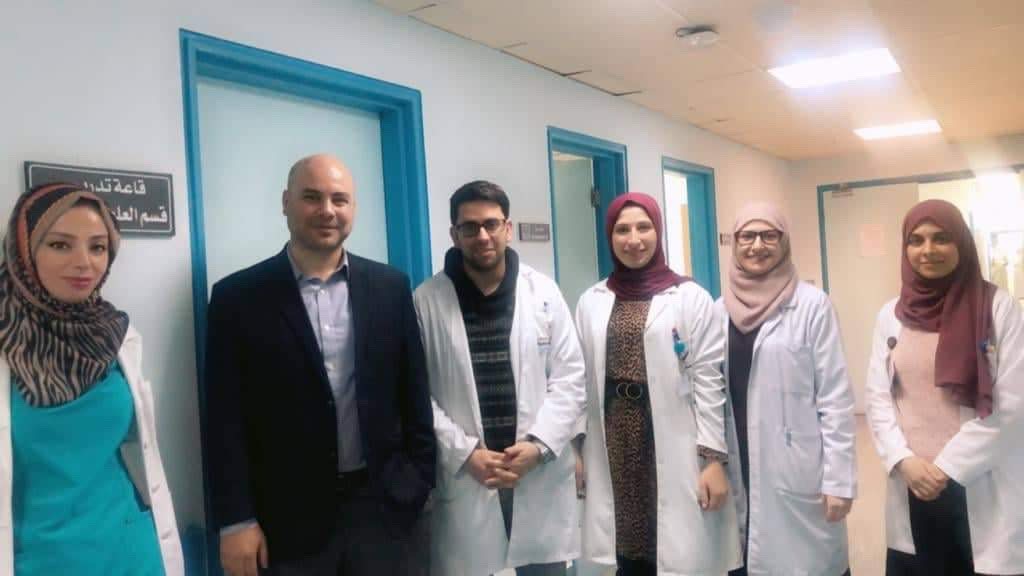
According to the last official census in 2017, the population of Jordan has reached 10,053,000, with a significant increase due to the waves of new immigrants from neighboring countries. The distribution of age groups is almost pyramidal, where 44.3% are less than 20 years old, and 4.5% of the population are above 60 years old. There are 116 hospitals, with a total of 14,779 beds representing 680 person/bed with a 66.2% annual occupancy rate. There are 22.5 doctors and 42 nurses/10,000 population. These numbers are considered one of the highest compared to other neighboring countries. However, there are no official data regarding the total number of ICU beds in Jordan. But a reasonable estimate would be around 6-8 beds per average-sized hospitals, and 20-30 in a major teaching hospital. There has always been much pressure on deficiency in ICU beds.
The overwhelming majority (86%) of the population is covered with some form of insurance: mostly (44%) through the Ministry of Health (MOH), 27% through the Royal Military Medical Services (RMS) and 7% through the private sector (PS). The hospitals in Jordan are governed and function under one of the six major healthcare systems.
Cardiovascular diseases (38%) and cancer (14%) constitute the major causes of death in Jordan. Trauma (10%), mostly secondary to road traffic accidents, are the third most common cause. In 2013, there were 10,227 accidents resulting in 768 mortalities. A significant portion of mortalities were related to head injuries. Cerebrovascular disease caused 10.8% of deaths, according to MOH ICD-10 codes in 2015.
Currently, there are no designated neuro ICUs in Jordan. As a specialty, NCC is currently not recognized by the Jordan Board for Medical Specialties. The major teaching hospitals might have few designated beds for neurological emergencies within their medical or surgical ICUs. Those patients are managed by anesthesiologists and/or pulmonologists, in collaboration with neurologists or neurosurgeons. ICUs in tertiary and academic hospitals are staffed with a dedicated clinical pharmacist to ensure the patients receive the necessary medications at the appropriate doses and are evaluated for drug interactions and any adverse drug events. Regarding nursing care for NCC patients, the education and training for monitoring, performing neurological exam and handling external ventricular drains is usually passed from nurse to nurse during their initial time in the ICU before becoming an independent staff nurse, in addition to the critical care skills required for the job. Neurosurgery resident and staff also play a significant role in the management of EVDs in the ICU.
Thrombolytic therapy is not widely available in Jordan, partly due to the limitations in the triage and transfer systems, in addition to the major deficiency in the public stroke education. There are only few neurologists in Jordan with stroke training and limited stroke units. Very few interventional neuroradiologists and general interventional radiologists perform thrombectomies in carefully selected stroke patients.
Future Directions
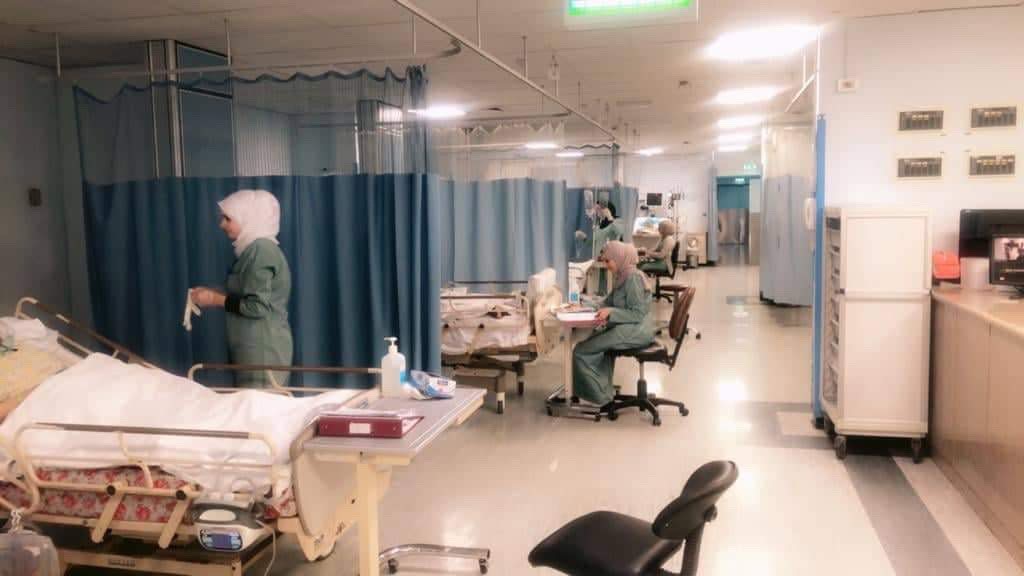
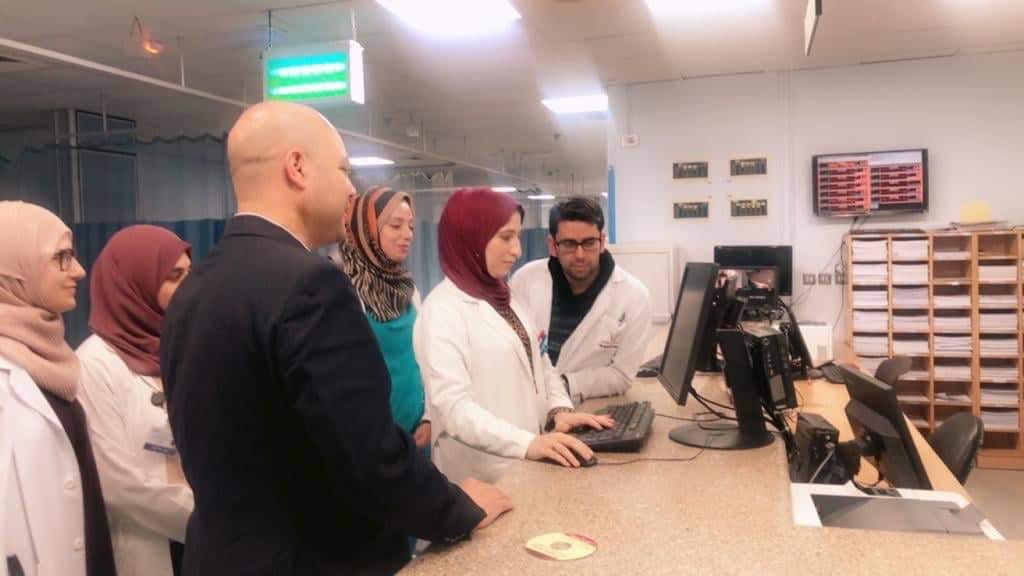
The neurology team rounding in the ICU at Jordan University of Science and Technology - School of Medicine, King Abdullah University Hospital
The need for NCC education, concepts, protocols, training as well as dedicated neuro ICUs in Jordan is obvious. This is a huge task that requires a significant collaboration between the government and the private sectors to overcome the different challenges, including the need for trained providers across the healthcare spectrum, including hospital and business administrators. Establishing programs for public education is vital for the success of the NCC field.
Given the global commitment of the Neurocritical Care Society (NCS), we collaborated with the global section to start building a chapter for NCS in Jordan with providers who are currently practicing in Jordan, some of whom have trained in the United States, as well as providers practicing in the United States with Jordanian roots. The goals are to provide systems and plans for a structured NCC education, starting with introducing Emergency Neurological Life Support (ENLS) and established NCS guidelines. All this is with the goal in collaborating with the Jordanian Counsel for Medical Specialties to establish a pathway for NCC training and certification in Jordan in the near future.
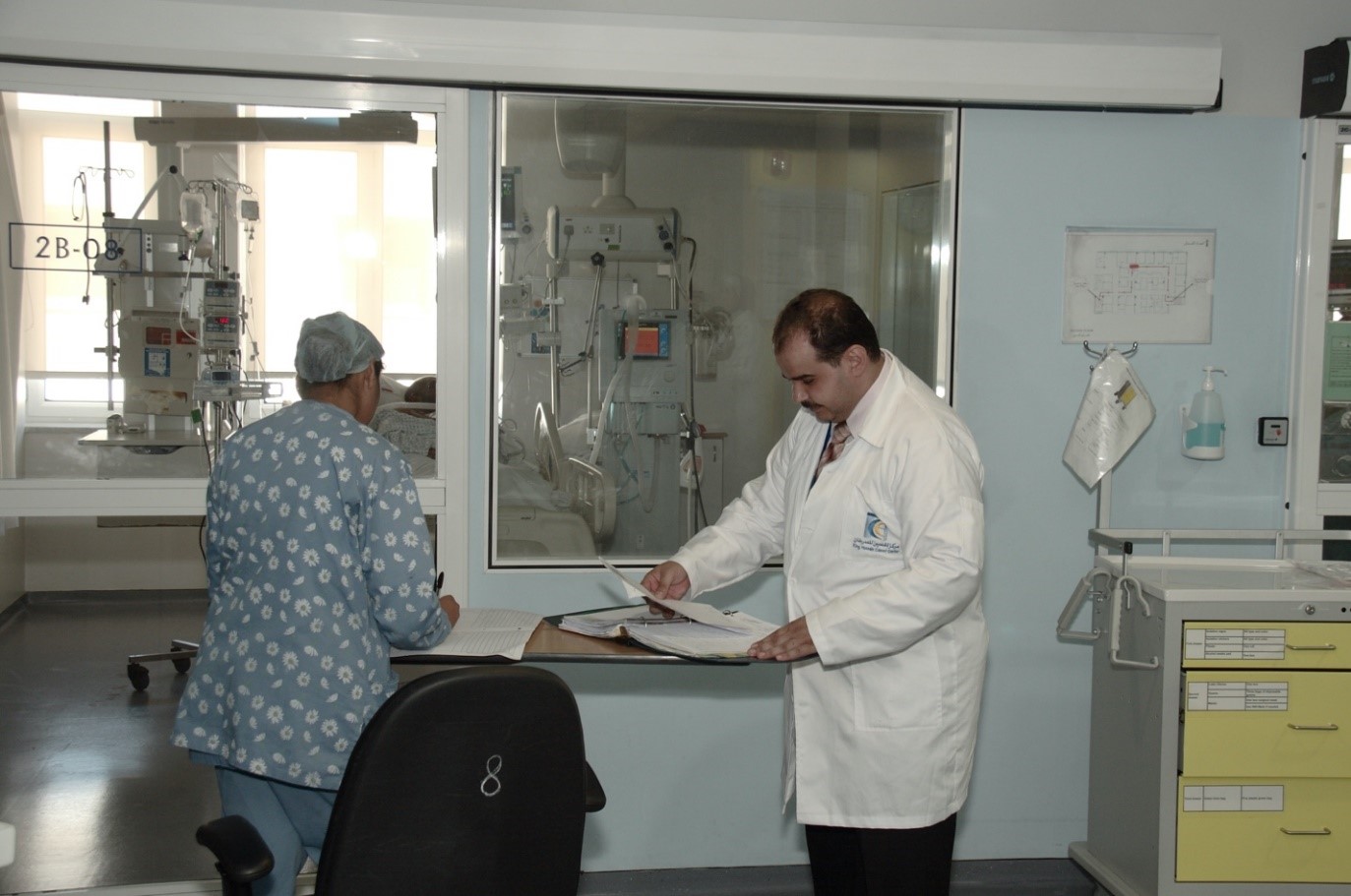
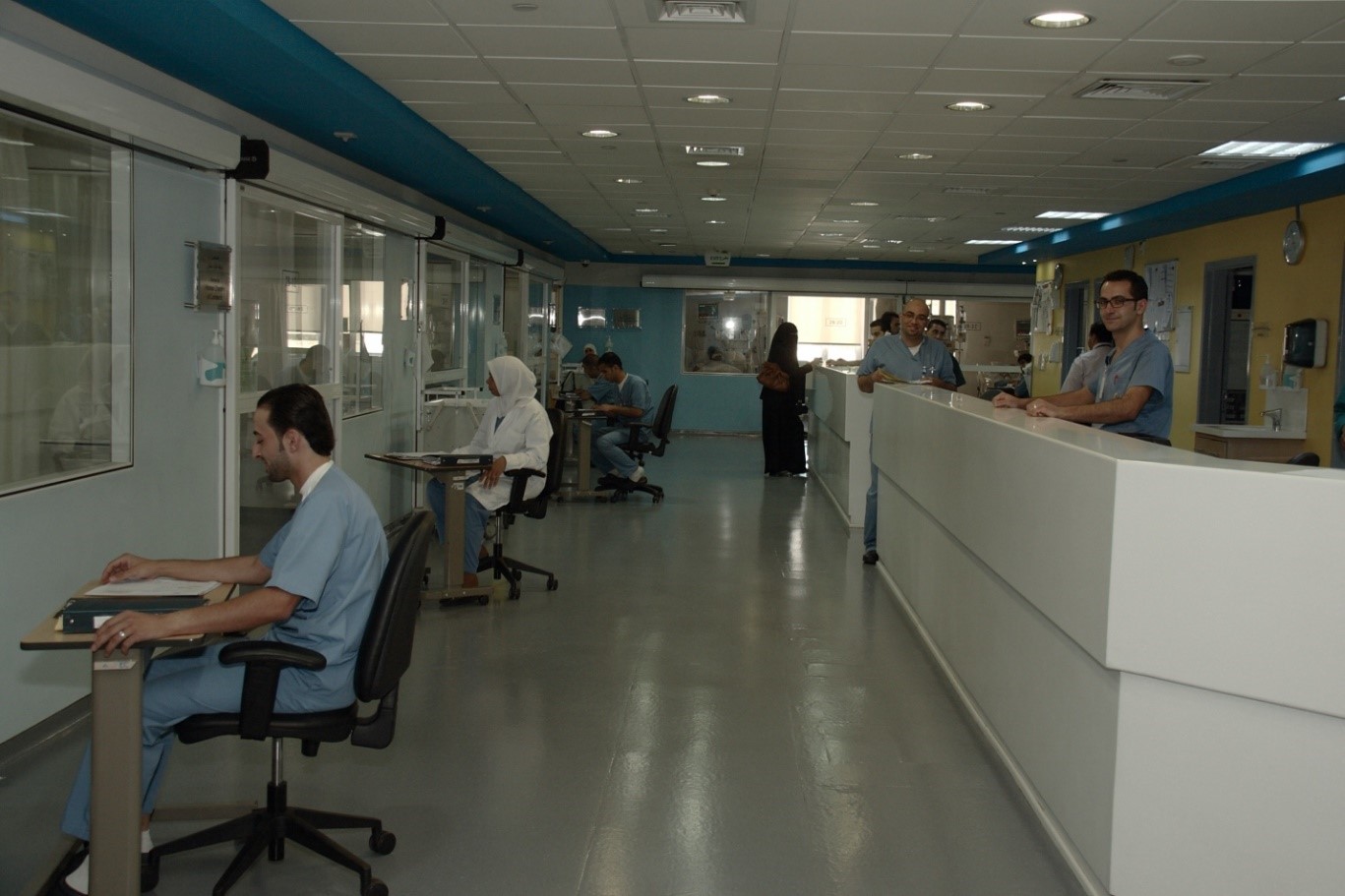
The Medical/surgical ICU were Neurological patients are admitted at King Hussein Cancer Center